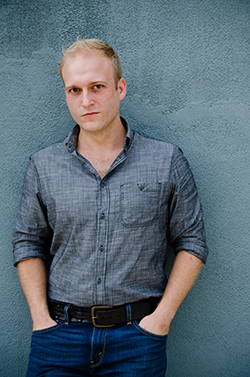|
Maybe it's in our nature to build walls between now and then. After all, our language is riddled with cautions against confronting what has happened. Sleeping dogs, and all that. Barring the past from the eyes of the present leaves us safe to construct comforting myths, safe to deny the past its true reach. However much we embrace certain flattering aspects of our histories, whether personal or national, we do it behind walls to protect ourselves from the pain of recognition and, ultimately, guilt. Worse yet, many of us spend countless hours bolstering the walls built by those who came long before us, caretakers of generational illusions.
For instance, I had a music teacher in college who closed out the semester with a speech about Romans and Vandals. The Romans, he said, built a culture, a system of government, forms of art, things we recognize and embrace and which form foundations of our civilization. The Vandals, on the other hand, had no art, no culture, and they destroyed Rome out of, in his view, ignorant spite. Be a Roman, he said gravely, not a Vandal.
It just so happens that my people, or some of them, were Vandals. My grandmother's family name, Fandal, is apparently derived from that tribe, which in the fifth century spread across Europe into Spain, North Africa, and at the height of their power sacked Rome itself. At the time, sitting in the lecture hall, I knew nothing of Vandalic art or culture, knew only a little about Rome's history, and barely grasped familial connection to any of this, but I knew that what the professor was saying was deeply, ridiculously wrong.
He meant well, I think; he was trying to make a point about the importance of art, however wrongheaded. In doing so, he was patching a wall (civilized empire versus cultureless barbarians) that should've long since been left to crumble. But at the time I felt only anger and contempt for his point. What, I wanted to ask, bought and provided for the development of that celebrated culture? The subjugation of peoples like the Vandals. The fact that they turned the tables on their subjugators didn't, in my mind, qualify them to become a byword for wanton destruction. It made them rather exciting, frankly, even if they were, in Rimbaud's words, mere “hide-flayers and hay-burners.”
It just so happens that my own branch of Fandals had their fair share of let's say lawless episodes. The stories handed down of those deeds are part of what made me want to be a writer. The verve of these stories and my own experience with incarcerated family members bent me towards characters in circumstances that some might feel are irredeemable, and moreover inclined me in my work to confront the institutions and comforting myths that are built in the shadows of our many walls. This includes interrogating the stories I was told and the stories I tell myself about my place and people. Badness, after all, can be its own self-serving myth.
My family and its history appear in various guises in my work, inhabiting almost every character I've written. Rather than tell their stories wrapped in the thinnest veils, their acts and passions and tragedies exist in characters to whom they often bear little resemblance. Similarly, when writing about the past, I care more about achieving the effect of immersion in a point of view than pure fidelity to historical event. Secret histories and skewed perceptions can strike us with far greater force than plain relations of agreed-upon fact. Rather than embrace the idea of the past as another country, I want readers to feel that it is uncomfortably present, that the aftershocks of the tragedy they're reading about is shuddering through them even now. That none of us, whatever stories we tell or are told, are removed from history.
This, for me, is all part of tearing down the walls between past and now. I believe in making the past visceral and astonishing, and sparking in the reader not just recognition or empathy, but sorrow, shame, guilt. I believe in smashing idols, edifices, comforting myths. Because, fifteen years since that day in the classroom, I'd still rather be a Vandal.
|


